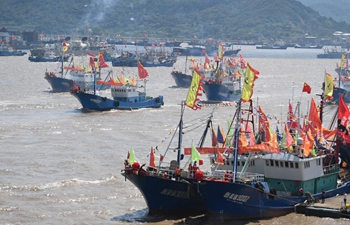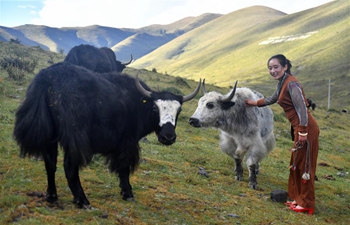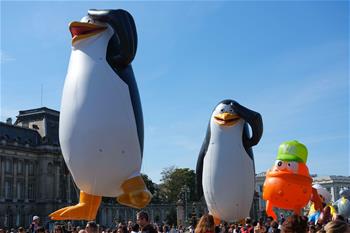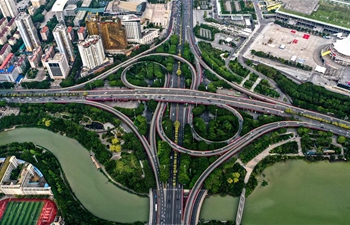SYDNEY, Sept. 17 (Xinhua) -- A report released on Tuesday by Australia's Climate Council showed the severe impact of climate change on the country's natural environment through a collection of visual images.
Some pictures were about the dead coral reefs, baron coastal escarpments, the charred remains of world heritage forests as well as piles of dead animals which have succumbed to extreme heat spikes.
Report author Professor Lesley Hughes told Xinhua that like the Climate Council's roughly 100 previous releases, Tuesday's report is intended to increase the public's awareness about the very real effects of climate change.
"We've taken a slightly different tack with this report in that it's mainly images and it's light on text," Hughes said.
"We really felt the best way to get across to people what's happening to our ecosystems as they transform is to present a whole lot of visual images."
By contrasting past images with present ones, the stark differences in the health and coverage of vegetation in a number of key areas is startling and apparent.
And it's not just the landscape which is seen to be suffering. Australia has also recorded a number of mass animal death events, on top of the first mammal classified as becoming extinct as a result of climate change.
The number of Bramble Cays melomys, a species of native rodent which once occupied a sandy atoll in the Torres Strait, north of the Australian mainland have declined over decades.
And rising sea levels, accompanied by severe storms, have been blamed for inundating the island and drowning the last remaining members.
According to Hughes, Australia is particularly vulnerable to the effects of climate change due to its location, ample coastline and notoriously hot and dry climate.
"We're getting the sorts of climatic extremes here that have been projected for the last three decades," Hughes said.
"More extreme hate, more extreme flooding, more extreme droughts, more extreme bushfire season -- so we shouldn't be surprised."













